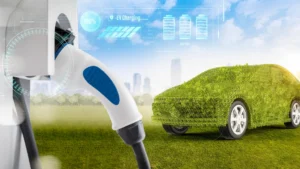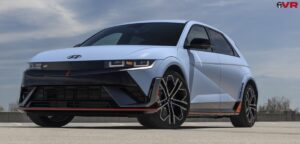With the increasing popularity of electric vehicles, the whole automotive industry is being swept by a wave of change. This is shifting our ways of thinking about transportation and beating another nail towards sustainability. Let’s see exactly how this transformation within the industry benefits the stakeholders and shapes a bright future for manufacturers and consumers alike.
Innovation and Technological Advancement in EVs

Growing demand for electric vehicles is driving unprecedented innovation in the automotive industry. Traditional automakers have turned serious investors in research and development to improve battery efficiency, increase vehicle range, and speed up charging. New technologies have thus been invented, like solid-state batteries, faster charging systems, and enhanced vehicle software that set new standards for performance and efficiency. Competition for leadership in EV technology is stretching the envelope on what is achievable in vehicle design and engineering.
Environmental Responsibility and Brand Image

The transition to electric cars thus also gives automobile companies a chance to reinvent themselves as ecologically responsible brands. EVs reduce carbon emissions and reliance on fossil fuels substantially; hence, their use has a corresponding positive effect on meeting the global sustainable development goals. In producing environmentally friendly vehicles, car manufacturers enter an expanding market filled with ecologically conscious consumers, eager for green transportation options.
New Business Avenues Open Up
Companies operating in the automotive industry have been given new paths for the expansion of business, ranging from vehicle production to battery manufacturing, charging infrastructure, and even software development. In the given trend, the automakers are considering alliances with energy companies and technology firms for developing charging networks, battery recycling facilities, and integrated management of the vehicle fleet.
Lower Operational Costs for Manufacturers and Consumers
Conventional electric vehicles have fewer complex mechanical systems and are easier to make and service compared with conventional ICE vehicles. This, in essence, means lower production costs for manufacturers and a reduction in the number of moving parts in a vehicle. To the consumer, the advantage spills over to lower maintenance costs since EVs do not need oil changes, fuel filters, or exhaust system repairs.
Government Support and Incentives
Besides financial incentives, several governments around the world give very friendly policies toward electric vehicles. Examples of such are tax credits, subsidies, rebates, and investments in public charging infrastructure. Automakers benefit from these incentives as they make EVs more appealing and affordable to consumers.
Conclusion
The class of electric vehicles opens up an era of innovation, sustainability, and growth for the automobile sector. From technological advancements, positive brand images, new opportunities, and cost benefits, EVs are indeed changing the face of the industry for good. As original equipment manufacturers continue to adopt the idea of electric mobility, they’re not only shaping the future of transportation but also playing a very positive role in making the planet greener and cleaner.
Also Read: India’s Top 5 Electric Cars of 2024









Leave a Reply